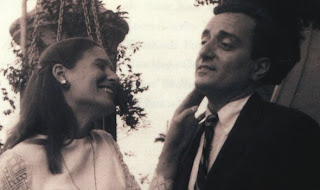

Genovese demonstrates in A Consuming Fire, Southern Christians continued to trust in the Lord's will. In 2004 The Intercollegiate Studies Institute presented them jointly with its Gerhard Niemeyer Award for Distinguished Contributions to Scholarship in the Liberal Arts.The fall of the Confederacy proved traumatic for a people who fought with the belief that God was on their side. Fox-Genovese and Genovese serve on the editorial boards of a number of scholarly journals and are co-authors of Fruits of Merchant Capital: Slavery and Bourgeois Property in the Rise and Expansion of Capitalism. Among his books are Roll, Jordan, Roll: The World the Slaves Made The Slaveholders' Dilemma: Southern Conservative Thought, 1820-1860 and A Consuming Fire: The Fall of the Confederacy in the Mind of the White Christian South. Genovese, a retired professor of history, served as first president of The Historical Society. Among her books and published lectures are: The Origins of Physiocracy: Economic Revolution and Social Order in Eighteenth-Century France Within the Plantation Household: Black and White Women of the Old South and Feminism without Illusions: A Critique of Individualism.Įugene D. In 2003 President George Bush honored her with a National Humanities Medal, and the Fellowship of Catholic Scholars honored her with its Cardinal Wright Award. She is Editor of The Journal of The Historical Society and serves on the Governing Council of the National Endowment for the Humanities (2002–2008). Past and future Caesars Epilogue: King Solomon's dilemma.Įlizabeth Fox-Genovese is Eléonore Raoul Professor of the Humanities at Emory University, where she was founding director of Women's Studies. Between individualism and corporatism: from the reformation to the war for Southern Independence 22. Theopolitics: golden rule, higher law, and slavery Coda: St. Serpent in the garden: liberal theology in the South 20.

Unity and diversity among the faithful 15. Chivalric politics: Southern ladies take their stand Part IV. Ancient Legacies, Medieval Sensibility, Modern Men: 8. History as the story of freedom Part III. World history and the politics of slavery 7. The slaveholders' quest for a history of the common people 6. History as moral and political instruction 5. 'The Purest Sons of Freedom' Entr'Acte: the bonds of slavery Part II. The age of revolution through slaveholding eyes 3.


 0 kommentar(er)
0 kommentar(er)
